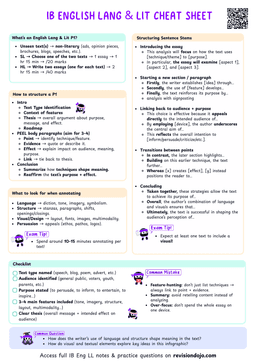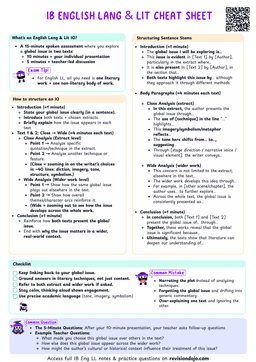Style Is The Writer's Voice on The Page
- Some sound poetic. Others sound messy, funny, angry, blunt, or broken.
- And it’s not random, style shapes how you experience the text:
- Who a character is
- How you're meant to feel
- What stands out
Style is just how the writing sounds and why that sound matters.
Diction = Word Choice
Diction
The kind of words the writer chooses.
- Diction can be formal.
- It can be slangy. Childlike. Poetic.
- Formal diction: “The sun set behind the mountains, casting a golden hue over the valley.”
- Effect: Sounds calm and elegant, like a painting.
- Informal diction: “The sun went down, painting the valley in gold.”
- Effect: More relaxed. You’d hear this in everyday conversation.
Sentence starter: “The author’s use of [formal/informal] diction creates a tone that feels [serious / gentle / playful / raw]…”
Syntax = Sentence Structure
Syntax
How the writer builds sentences.
- Are they long and flowy or short and sharp?
- Does the writer vary between the two?
- Long syntax: “The wind whispered through the trees, carrying the scent of pine and the promise of rain.”
- Effect: Feels peaceful. Slow and reflective.
- Short syntax: “The wind blew. It smelled like rain.”
- Effect: Feels blunt, tense, or emotionally shut down.
Try saying: “The short, choppy syntax mirrors the character’s numbness and makes the mood feel distant…”
Structure = How the Text Is Built
- It's about how the whole thing is put together.
- Structure includes:
- Time: Does the story move forward normally, or jump back and forth?
- Perspective: Who’s telling the story, and does that change?
- Pacing: Are some parts fast and dramatic, while others slow and reflective?
- Paragraphing / Chaptering: Are there long chunks of narration or short, sharp fragments?
- Narrative techniques: Stream of consciousness, flashbacks, shifting viewpoints, etc.
(Beloved by Toni Morrison): The story jumps between past and present, sometimes within the same paragraph, without any clear transitions.
- The structure feels disjointed and confusing but that’s the point.
- It mimics how memory works, especially when shaped by trauma: non-linear, scattered, fragmented.
- You’re supposed to be inside their fractured emotional world.
Structure Across Different Text Types
- Fiction
- A non-linear timeline might create mystery (why is this character so afraid of the past?) or reflect emotional instability.
- A first-person narrator might offer a limited, biased view, forcing readers to read between the lines.
- Memoir / Non-fiction:
- A writer might begin in the present, then flash back to earlier life events.
- This can show how past experiences shaped who they are now.
- Poetry
- Structure might include stanza breaks, enjambment (run-on lines), or circular patterns to create rhythm or emotional impact.
- Plays / Drama
- Think of how Shakespeare divides scenes and acts.
- A sudden entrance, a soliloquy, or a dramatic pause can shape tension and pace.
- Persuasive Texts
- A writer might start with a personal story, then zoom out to broader issues.
- Or build tension gradually before delivering a powerful conclusion.
Sentence starters:
- “The circular structure brings the reader back to the beginning, suggesting that the character hasn’t really escaped their past.”
- “The alternating perspectives allow us to see both internal conflict and external pressures, deepening our understanding of the character.”
- “The short paragraphs and abrupt transitions create a sense of urgency and mimic the rush of emotion.”


